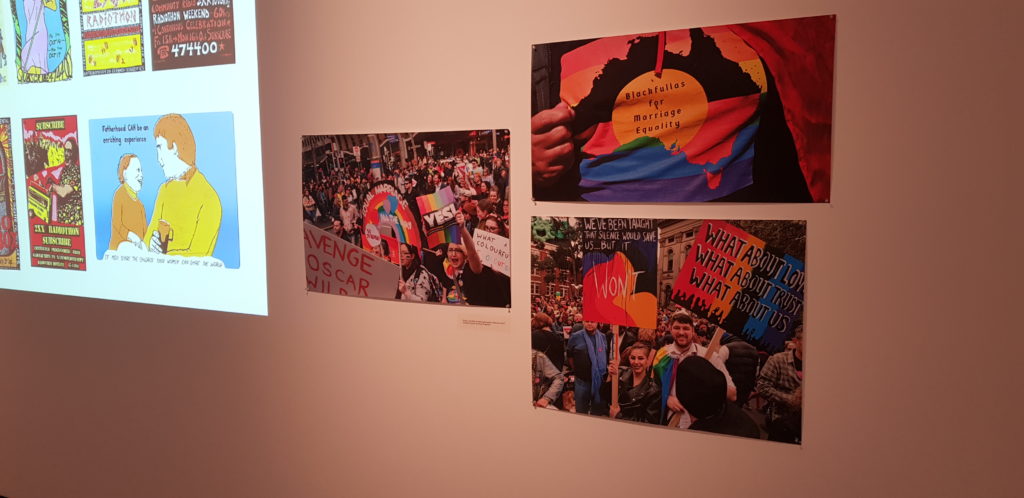“Australia has come a long way if you think of the marriage equality vote and how far that has changed people’s perceptions” Said queer historian Angela Bailey.
Last year, Victoria hit the 40th anniversary of the decriminalisation of homosexuality.
To coincide with the anniversary, The Australian Queer Archive made a report entitled “A History of LGBTIQ+ Victoria in 100 Places and Objects”.
Angela Bailey helped write that report.
“But also with that I think the majority of people will see from that campaign the homophobia and bitterness that played out, and I don’t think they’ll forget that in a hurry. If you’ve experienced being queer for a few years, you’ll know that you don’t have to scratch the surface far to find discrimination” She said.
“There’s so many countries around the world, Poland for example, where it’s still a criminal act.”
“Schism”, The president of the Victorian Pups and Handlers Association or VICPAH, said “I think there is a lot left to be done, and it will be difficult because there’s no real, clear path to getting everyone on the same page.”
“For example, I ran a kink group for a pride march, and there’s a huge amount of discourse on whether those groups should be allowed in pride at all.”
Schism says the biggest issue in the community at the moment is identity.
“Gay rights are accepted by a huge portion of the population, so it’s like ‘no one is trying to kill me now, now you’ve just got to accept me for who I really am” They said.
“The struggle is for people to just feel like they’re understood. I don’t think there’s very many people who feel like they’re understood.”
“I think there’s still a lot of shame for people who feel different. Trans people have it the hardest, that’s the reality of the situation- It’s really easy to find examples of trans people who are half accepted, where people will say ‘you’re still part of the family because you’re trans’ but they don’t really care to find out who it is that they actually are.”
“I feel like there is a huge problem, not just in identity politics but in politics in general, where their voice isn’t being taken into account because no-one cares to learn how their lives actually work.”

Schism also felt there was a disconnect between the younger and older generations in the LGBTQI+ community.
“I don’t want to make a blanket statement or paint with a broad brush, but I don’t think there are as many young people who are interested in learning about the history, in every scene.”
“Most of the time the burden is actually on youth to seek out this information, not to say that the older generation don’t want to tell their stories- of course they want to tell their stories, but the burden is on the youths to seek them out which is hard for the youth to want to do that, because being a gay person when you’re young is all about self-discovery.”
Ms Bailey said that online media is helping with this disconnect.
“We noticed through a couple of online events that younger people in the community had watched the recent stan show “It’s a Sin”, and so they were particularly interested in that history as it wasn’t a lived experience for them, having gone through the AIDS crisis” She said.
As a result, the recent “Queer heritage in Victoria” exhibiton at Ivanhoe library had a broad focus of LGBTQI+ history.
“We wanted to give a broad stroke with some of the history and items we highlighted, with a bit of living memory with the marriage campaign particularly” Ms Bailey said.
“That’s why we wanted to highlight some of the stories around AIDS, so we showed the memorial quilt, some photographs from Act Up, the red ribbon, things like that because it highlights a community response to a health crisis which is particular to what’s going on today, but it’s also interesting as a health crisis that was very much targeted towards a particular community and there was so much stigma around that.”
According to UNAIDS, it’s estimated that roughly 29,000 people lived with AIDS in 2019. At its peak, AIDS killed around 1,000 Australians in 1995 alone.









